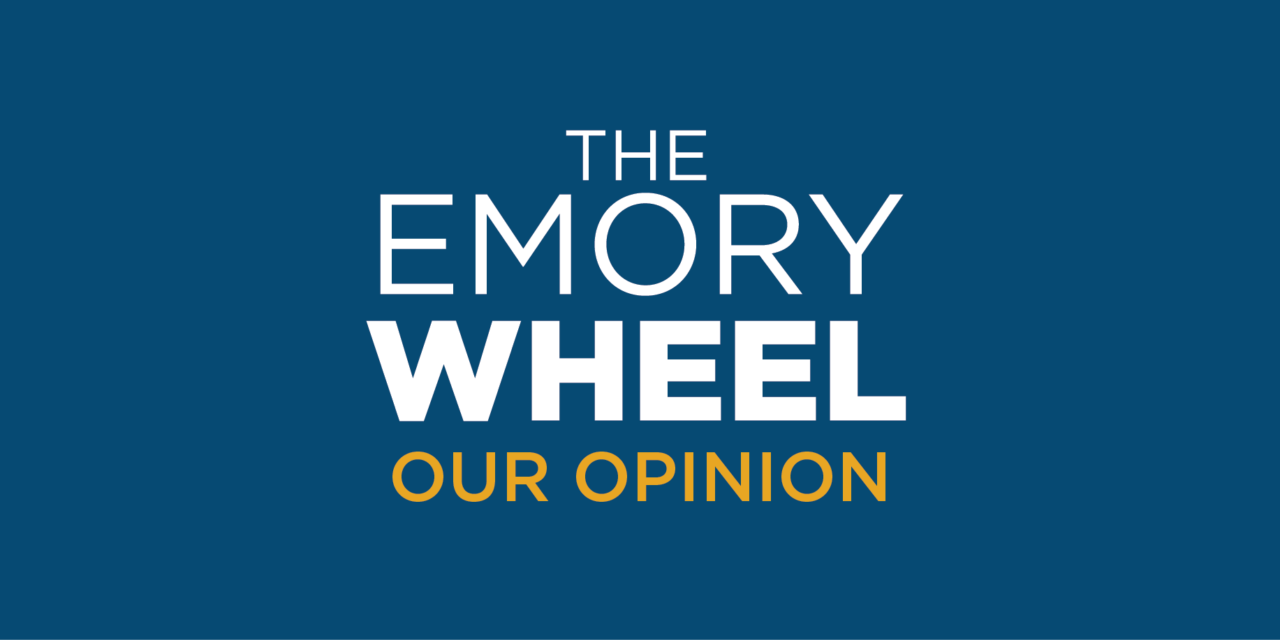The College Curriculum Committee approved the proposal for a Bachelors of Science Degree in Engineering Sciences for undergraduate students on Feb. 9. The program, if approved by the University Substantive Change Review Committee, would allow students to choose from three concentrations designed to be interdisciplinary by nature.
We at the Wheel feel that the establishment of a major in a field which Emory University has no history of eminence strays from the vision used to justify the Fall 2012 departmental changes enacted by Dean Robin Forman, including the closing of the Journalism program, the Division of Educational Studies and the Visual Arts department, among others. While the proposal has yet to receive final approval, we don’t understand how this program contributes to the goal of preserving and strengthening the University’s most eminent departments and parting from more “pre-professional” degrees in favor of the liberal arts experience.
We support Emory’s attempt to improve its reputation and competitiveness among peer institutions by establishing new degree programs. However, we are concerned that this proposal, which seeks to add only one new class, Fundamentals of Engineering (PHYS 222), and a combination of already existing courses to what was previously an Applied Physics major, does not establish a program of considerable academic eminence.
In our view, it merely slaps the buzzword “engineering” onto a physics program already in place and will fail to provide the skills necessary to merit its new label. We realize that this program was not intended to compete with the dual-degree program with Georgia Tech, but we feel that the word “engineering” in a graduate’s field of study is less valuable than experience in drafting, design and software like AutoCAD, among other specific subject areas. If the motivation for creating this major is to make it easier for students to be accepted to graduate engineering programs, a benefit emphasized by some proponents of the program, we do not understand how this is compatible with Forman’s labeling several of the programs discontinued in 2012 as “too pre-professional.”
We believe that the current dual-degree program offers a highly valuable academic opportunity, as it allows students to graduate with degrees from both liberal arts and an engineering-focused institutions and, most often, get a well-paying job immediately after graduation. The fact that students in the College had in part suggested the Engineering Sciences major proposal demonstrates a clear desire for these skill sets that is not satisfied by the dual-degree program, and may help students who are not accepted to the dual-degree program and wish to study engineering in graduate school.
If it is the College’s intent to provide students with the opportunity to further their intents in engineering without narrowing their options down to the dual-degree program, we hope that this proposal is the first in a series of steps to establish the goal of “eminence” used to justify the 2012 changes. Though we believe University funds could be more usefully allocated to a multitude of other purposes, such as need-based financial aid awards, the program should be further developed if it is indeed “eminence” that we are working toward.
If aggrandizing the program is not a long term goal, we believe the University should hesitate at the very least to create a major that is essentially a crossword puzzle of other programs under the coveted brand of “engineering.” It could threaten the Emory’s target of pursuing eminence in a set of specific but prestigious areas, such as Business and Neuroscience and Behavioral Biology, and detract from the goal of avoiding “pre-professional” degrees.
The above staff editorial represents the majority opinion of the Wheel‘s editorial board.
The Emory Wheel was founded in 1919 and is currently the only independent, student-run newspaper of Emory University. The Wheel publishes weekly on Wednesdays during the academic year, except during University holidays and scheduled publication intermissions.
The Wheel is financially and editorially independent from the University. All of its content is generated by the Wheel’s more than 100 student staff members and contributing writers, and its printing costs are covered by profits from self-generated advertising sales.







